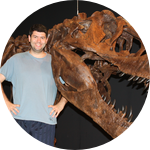It's finally time!
After months of roadblocks and waiting, the Soylent has finally arrived! We now have ~500lbs of base nutrient material being prepped into packages to be sent to the test subjects. As you remember, we have decided to use Soylent as our science chow due to the ability to order custom blends which completely remove a specific vitamin (in our case, the A1). The various materials are currently being tested for A1 by a second party and then will packaged and sent out.
Everyone relaxed for a while, and shipping ~85 lbs of materials around the country is no joke, so we are taking two weeks to make sure that all the materials are delivered and that everyone has regained their low body fat so that we can get the best data possible.
After that, we being the vitamin A1 deficient diet. Expect more updates as we approach March, including base line ERG readings and body composition data.
Again, thank you to everyone for their support and thank you for sticking with us while these hold-ups were being ironed out. We can't express how very excited we are to get moving with this project :)








2 comments